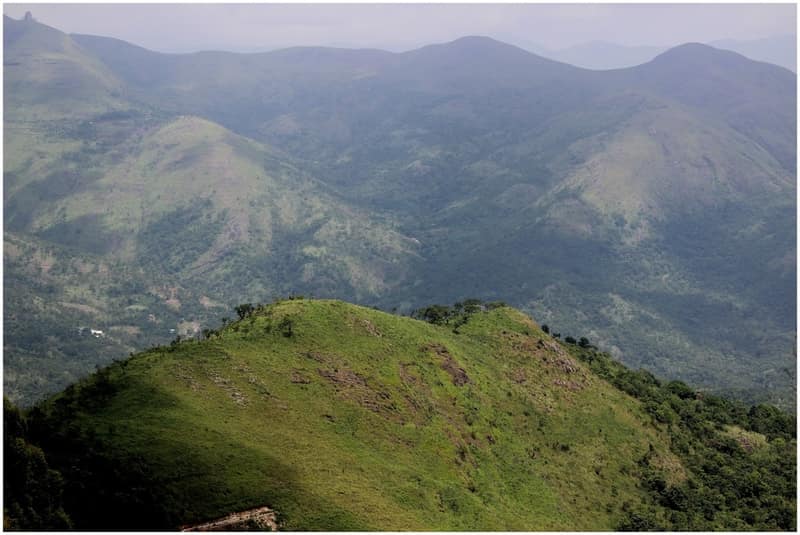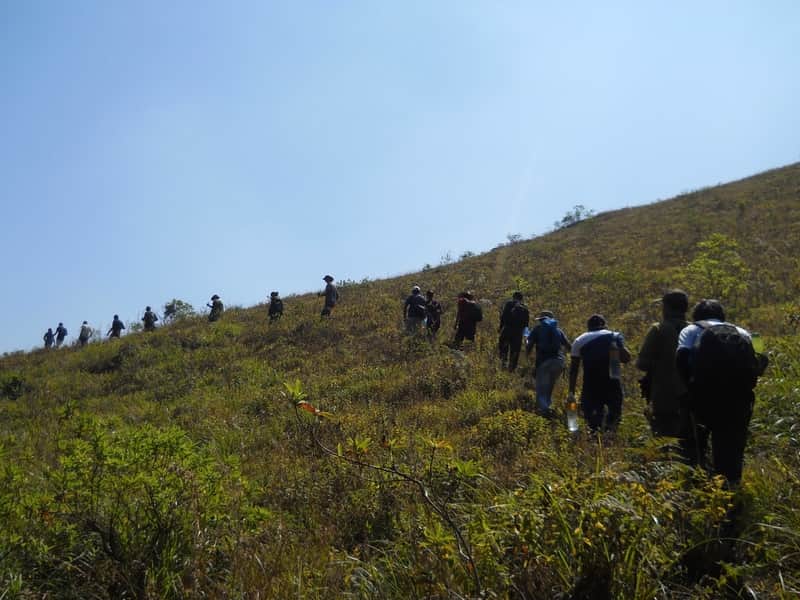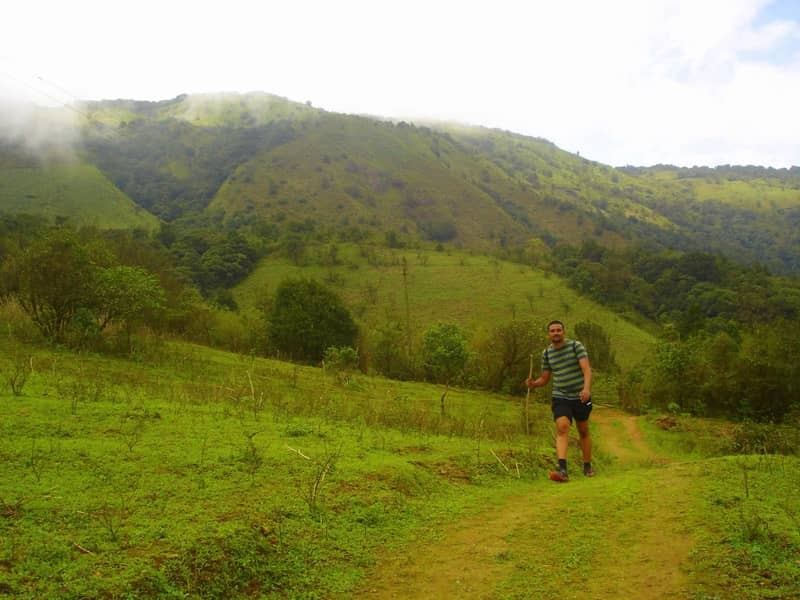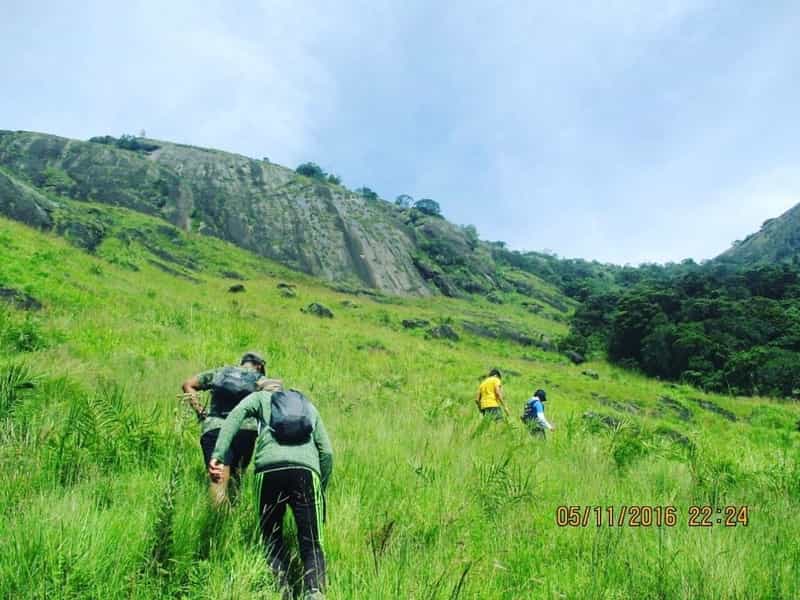For those that enjoy fitness and agility activities; exploring trekking trails at any vacation destination is recommended. For those holidaying in the south of India, there is no lack of trekking trails that beckon vacationers to get out their hotel rooms and explore the outdoors. 9 of the best trekking places in South India are as listed below.
9 Perfectly Adventurous Trekking Places in South India
1. Nilgiris Green Lake Trek

If you are a fitness enthusiast vacationing in Ooty; the Nilgiris Green Lake trek is an experience you wouldn’t want to miss out on. The Green Lake up in the Nilgiris is a feast for the eyes and the climb to this destination promises an uphill climb through dense mysterious forests and an excellent workout.
- Intensity Level: Easy
- Trek Duration: 6 – 8 Hours
- Best Season: September – March
- Trail Distance: 2133 Metres
- Altitude: 7,000 Feet
2. Perumal Peak

One of the highest peaks of the Perumalmalai Hills; Perumal Peak is a trekker’s paradise in more ways than one. The trek up to Perumal Peak promises beautiful views and a relatively easy workout. This peak in Kodaikanal is an established favorite for people who are new to trekking.
- Intensity Level: Easy
- Trek Duration: 6 – 8 Hours
- Best Season: January – May
- Trail Distance: 2439 Metres
- Altitude: 8,005 Feet
3. Tadiyandamol Peak

Karnataka has more than one peak that is popular among trekkers and Tadiyandamol Peak in Coorg is an excellent example. To reach the top of the peak; one must walk through Shola forests and the peak itself promises an excellent view. The trek is non-demanding which makes the trail popular among those who are new to trekking.
- Intensity Level: Easy
- Trek Duration: 4 – 6 Hours
- Best Season: October – March
- Trail Distance: 1747 Metres
- Altitude: 5734 Feet
4. Makalidurga Hill Fort

Trekking in the south of India is not limited to mountain trails; one can easily add some variation with trekking trips up to Makalidurga Hill Fort located 59 kilometers away from Bangalore City. This is a popular destination for night treks and the primary attraction of this fort is the Shiva Temple housed within.
- Intensity Level: Easy
- Trek Duration: 4 – 6 Hours
- Best Season: October – March
- Trail Distance: 1116 Metres
- Altitude: 3664 Feet
5. Narasimha Parvata

Narasimha Parvata in Agumbe, Karnataka is the kind of trekking destination; thrill seekers should proactively sign up for. There are dark forests and King Cobras on the way up to Narasimha Parvata and you will require a guide to keep you and your trekking party safe.
- Intensity Level: Difficult
- Trek Duration: 8 – 10 Hours
- Best Season: October – March
- Trail Distance: 1152 Metres
- Altitude: 3780 Feet
6. Nishani Betta

As mentioned before; Karnataka has much to offer trekkers and Nishani Betta in Coorg is yet another excellent example of trekking destinations in this South Indian state. This peak is also known as Nishani Motte and is primarily popular among trekkers.
- Intensity Level: Easy
- Trek Duration: 3 – 4 Hours
- Best Season: July – March
- Trail Distance: 1270 Metres
- Altitude: 4167 Feet
7. Talakona Waterfalls

When you are on the quest for trekking places in South India; you are bound to come across some variation. This includes popular peaks, a hill fort and the beautiful Talakona Waterfalls trek in Andhra Pradesh. One can choose one of many approach routes to this beautiful waterfall in Sri, Venkateshwara National Park.
- Intensity Level: Average
- Trek Duration: 6 – 8 Hours
- Best Season: September – February
- Trail Distance: 82 Metres
- Altitude: 270 Feet
8. Chokramudi Peak

Among the favored trekking places in South India; Chokramudi Peak in Idukki District of Kerala is high up on the list. The trek to the top of Chokramudi Peak provides a truly fantastic view of Idukki and thrilling uphill climb.
- Intensity Level: Average
- Trek Duration: 3 – 5 Hours
- Best Season: August – February
- Trail Distance: 2194 Metres
- Altitude: 7200 Feet
9. Chembra Peak

Surrounded by tea estates; your climb to the top of Chembra Peak is sure to provide you a beautiful panoramic you of the surrounding vistas. Permission from the forest office is needed before making this climb, however, this is one of the best trekking places in South India.
- Intensity Level: Average
- Trek Duration: 5 – 6 Hours
- Best Season: October – April
- Trail Distance: 2100 Metres
- Altitude: 6890 Feet
The 9 trails listed above are some of the most widely known trekking places in South India. Readers, who can add to this list with even more suggestions for trekking trails, should do so in the comments box below.























